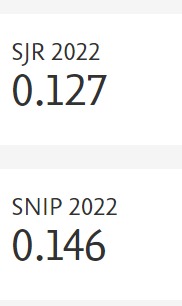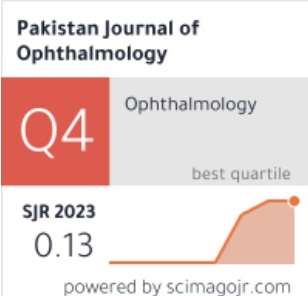Prevalence of Computer Vision Syndrome and Its Associated Risk Factors among Under Graduate Medical Students of Urban Karachi
DOI:
https://doi.org/10.36351/pjo.v32i3.106Abstract
Purpose: To determine the prevalence of computer vision syndrome and its associated risk factors among undergraduate medical students.
Study Design: Descriptive Cross – sectional study.
Place and Duration of Study: Study was conducted on undergraduate medical students of Bahria University Medical and Dental, Karachi, Pakistan from 15th January, 2016 to 15th July 2016.
Material and Methods: This institution based cross sectional study was carried out on 198 undergraduate medical students of Bahria University Medical and Dental, Karachi, Pakistan. All the students within age group 17-25 years and who have used computer in 1 month preceding the date of the study were included in the study. Students who were using medication that affect visual health, diagnosed with underlying systemic disease like Diabetes, Hypertension, having preexisting eye diseases and those who do not give inform written consent were excluded from study. Chi-square test was used to prove associations between categorical variables. Data was analyzed using the standard statistical software packages (V 21)
Results: Mean age of 20.16 ± 3.81 years. Out of 198 respondents 133 (67.2%) claimed that they have experienced at least (headache, eye fatigue, burning sensation, eye irritation, neck shoulder pain) related to Computer vision syndrome. Ocular symptoms of computer user ranged from eye irritation (48%), burning sensation (33%), eye fatigue (15%). Extra ocular complaints include neck shoulder pain (21.8%) to headache (38%) problems. Eye fatigue and headache was significantly associated with computer usage time (240 min/ 4 hrs).
Conclusion: This study concludes that computer vision syndrome is a highly frequent condition among undergraduate medical students.
Key words: computer vision syndrome, prevalence, ocular complaints, extra ocular symptoms






